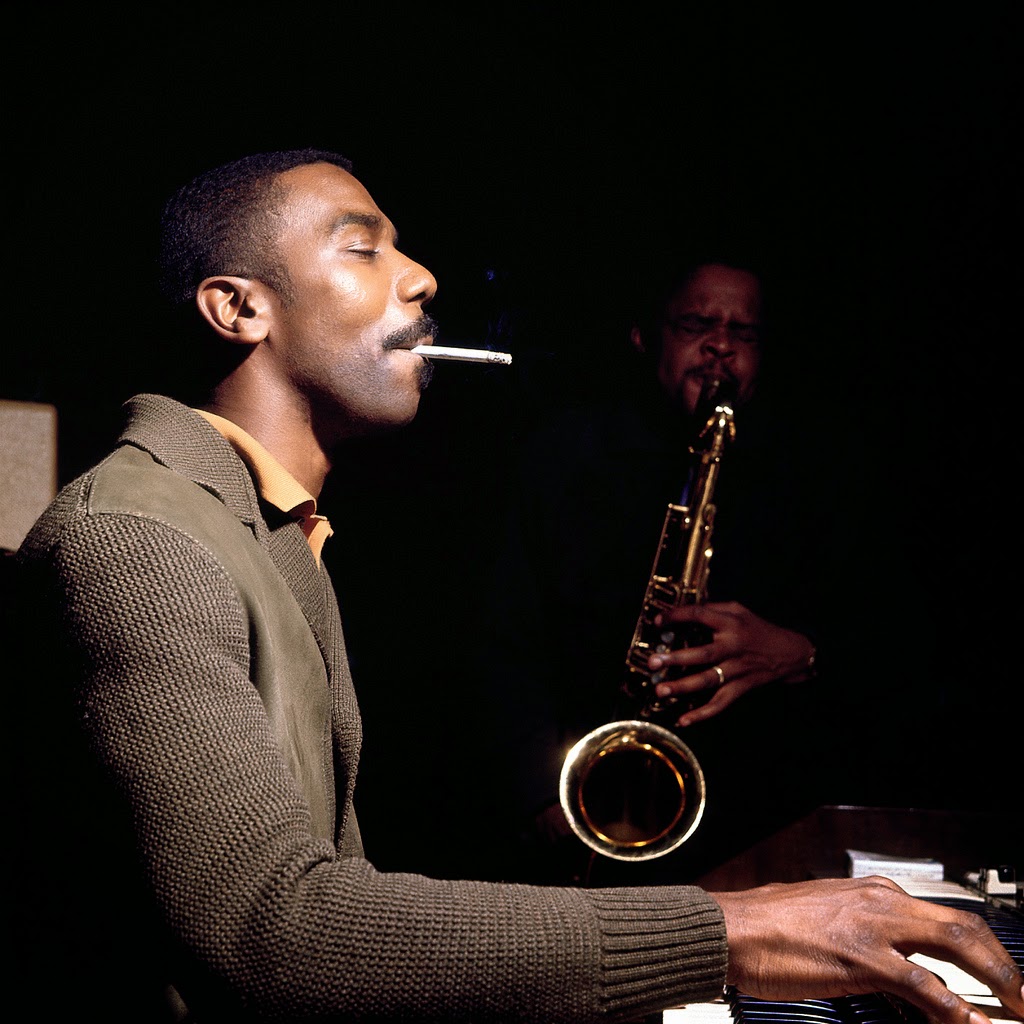Jimmy Smith was born in Norristown in Pennsylvania in 1925. His parents were both pianists and Smith’s father was his primary teacher. However, Smith told Leonard Feather that Bud Powell from Willow Grove had also made an impact on him. Smith, a prodigy, won a Major Bowes contest, in 1935. He quickly gained experience in western Pennsylvania, performing on radio in Philadelphia and working with his father for nightclub work. After serving in the Pacific during World War II, Smith returned to Philadelphia and began formal musical education. He studied harmony and theory at Halsey Music School (Clifford Brown was his classmate), and string bass at Hamilton School of Music. From 1950, he also studied piano at Ornstein. Smith discovered the organ while playing in Don Gardner’s rhythm-and-blues group in 1952. Smith began intensive self-tutoring over three months in 1955. Feather was able to see the details of Smith’s process. The chart was my guideline for locating the right place to put my foot on each pedal. “I would sometimes stay there for four hours or more, depending on whether I was lucky enough to find something that I liked and gain new ideas using different stops. After breakfast, I would take my lunch to the warehouse and continue there until I felt satisfied that I had done all that was necessary. Smith opened his first Atlantic City club as a single player in the summer of 1955. Smith was soon able to form his own trio and Babs Gonzales was his manager. Gonzales was quick to contact Alfred Lion of Blue Note. Smith was making his debut New York appearance at Small’s Paradise, Harlem in January 1956 when Lion saw him and signed him up immediately. His Blue Note recordings were what made Smith an instant success. His regular trio had albums, including all-star trios with Kenny Burrell and Grant Green, Art Blakey, Philly Joe Jones and Philly Joe Jones. There were also quartet albums featuring Lou Donaldson and Percy France, as well as the legendary sextet jam sessions. His great House Party and The Sermon albums were produced by Morgan, George Coleman, Curtis Fuller, and another with Morgan, Lou Donaldson, and Tina Brooks. Open House and Plain Talk were made possible by another date with Jackie McLean, Blue Mitchell and Ike Quebec. He had greater commercial success with Oliver Nelson’s arrangements, and Wes Montgomery as a guitarist. Many organists were able to take advantage of his success. Smith and his organ students created a whole sub-industry within the club circuit and recording industry. Larry Young was the one who expanded the vocabulary of the organ to include experimental and modal areas. Jimmy Smith is still the boss. –BOB BLUMENTHAL from The Complete February 1957 Jimmy Smith Blue Note Session, Mosaic.
